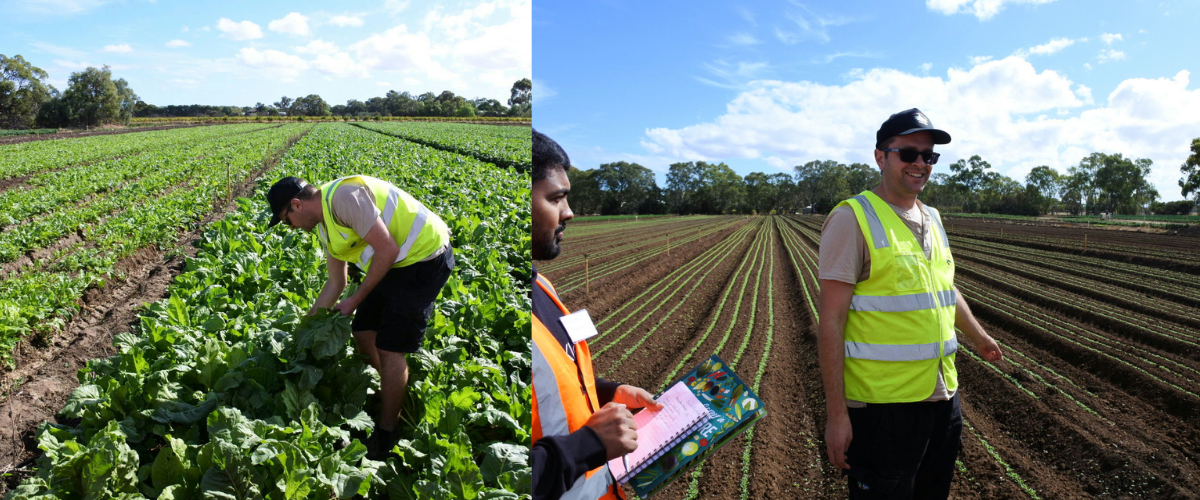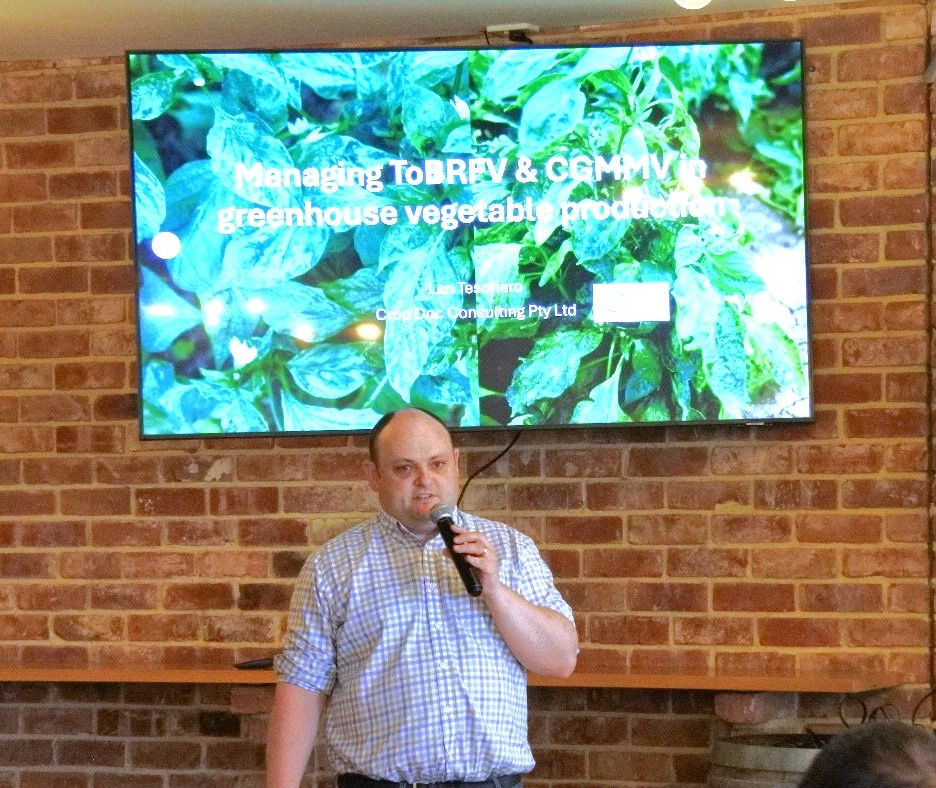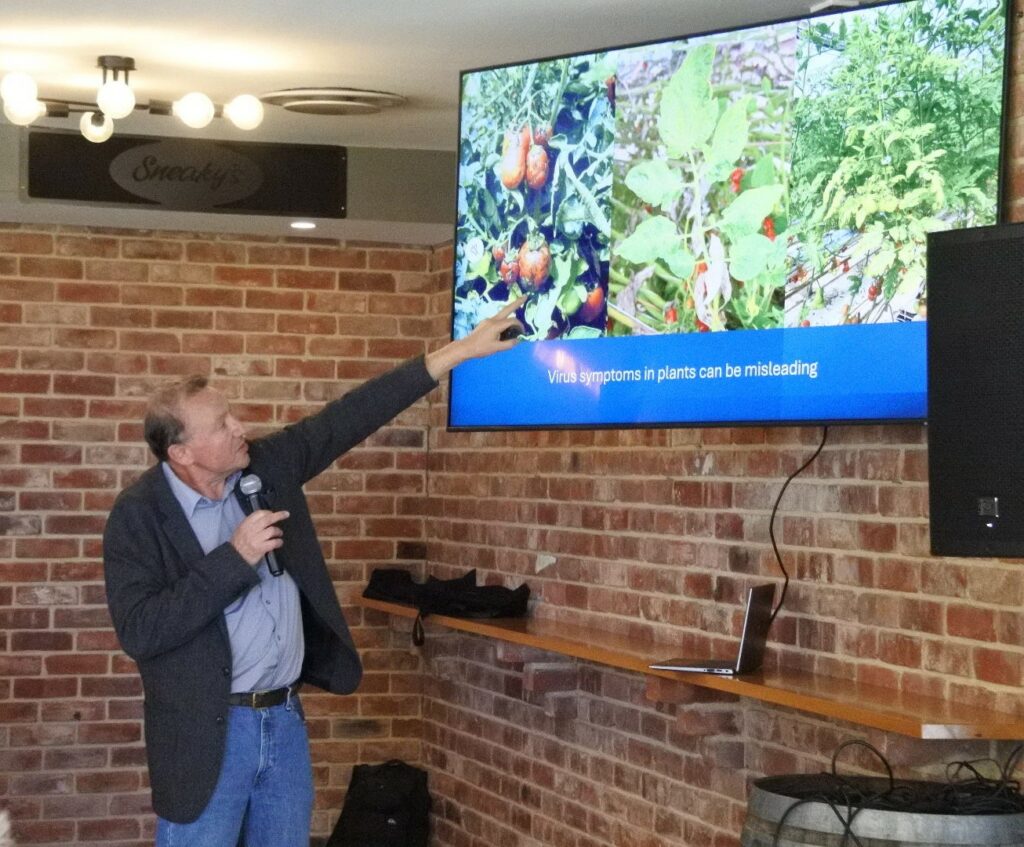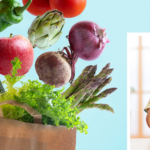
Increasing vegetable consumption by 2030: the Plus One Serve initiative
28 May 2025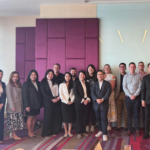
AUSVEG Southeast Asia Trade Mission: Singapore, Malaysia, and Thailand
28 May 2025VegNET South Australia Regional Update
The Regional Round-Up brought greenhouse growers together for a day of networking, updates, and shared insights, while the Investing in the Next Generation initiative gave horticulture students a behind-the-scenes look at the industry through an engaging and educational farm visit. Both events showcased the strength of the industry and the importance of supporting its growth—from established producers to emerging professionals.
Regional Round-Up event for greenhouse growers
VegNET SA continues to deliver high-value outcomes for our growers across the state, with recent initiatives under the VegNET program delivering critical industry updates, networking opportunities and education.
On 1 April 2025, the Regional Round-Up for Greenhouse Growers event was held at Sneaky’s Restaurant in Angle Vale. This event was delivered in partnership with AUSVEG SA and coordinated by the VegNET SA Regional Development Officer Peta Coughlin. It brought greenhouse growers together from the Northern Adelaide Plains to hear timely updates on ToBRFV (tomato brown rugose fruit virus) as well as broader industry concerns.
Keynote speaker and renowned plant pathologist Dr Len Tesoriero, who travelled from NSW, provided deep technical insights into virus transmission and resistance breakdown, with a particular focus on how ToBRFV impacts capsicums.
Dr Tesoriero explained that when capsicum plants are grown in soil contaminated with ToBRFV, a hypersensitive response can be triggered, resulting in lesions on roots and stems. This often leads to stunted growth and eventual plant collapse.
Research by Matsushita et al. (2024) revealed that capsicum seeds transmitted ToBRFV at a notably higher rate (10.1 percent) compared to tomato seeds. However, they also found that capsicum varieties carrying the L3 resistance gene were not systemically infected, and no virus was detected in their progeny seeds or seedlings. Encouragingly, the development and availability of seedless capsicum varieties are expected to further reduce the risk of ToBRFV transmission through seed. This session delivered targeted, actionable knowledge to help growers adjust their hygiene, propagation, and varietal strategies.
Growers also heard from Fabio Pappalardo of Enza Zaden on international breeding and genetics, including the latest resistant varieties and emphasised that “resistance does not mean immunity”, stressing the importance of continued hygiene and biosecurity practices.
Shakira Johnson, Biosecurity Coordinator at AUSVEG, lead discussions on how the Emergency Plant Pest Response Deed (EPPRD) supports growers through coordinated responses to biosecurity incursions. AUSVEG SA CEO Jordan Brooke-Barnett gave his informed input during the Q&A discussion, where the potential value of introducing a dedicated biosecurity levy for tomato growers was a key point of lively debate.
These conversations reinforced the importance of coordinated advocacy, research, and communication in safeguarding South Australia’s vegetable sector. The event also allowed for informal networking, giving local growers the opportunity to connect directly with the speakers, raise individual questions, and share experiences with others in the industry.

L-R. Regional Round up for Greenhouse Growers. Enjoying the networking at the Regional Round up for Greenhouse Growers.
Investing in the next generation
Thorndon Park Produce farm visit
Another calendar highlight was VegNET SA’s participation in a farm visit by University of Adelaide students studying the course Experiences and Insights in Agri-food Systems. The students had the opportunity to visit Thorndon Park Produce, operated by AUSVEG SA member Anthony De Ieso. Students were welcomed onto Anthony’s property with a demonstration of on-farm biosecurity protocols and then were led through a guided tour of the packing, wash, maintenance and cool room facilities.
Anthony invited VegNET SA’s new Regional Support Officer Kirsty Kittel to be a part of the presentation and farm tour. This gave Kirsty the opportunity to explain to the students how AUSVEG SA and VegNET SA work together to deliver programs and events for growers. During the visit, Anthony took time to talk about his collaboration with AUSVEG SA and VegNET SA projects, giving his participation towards the serpentine leafminer monitoring project as an example.
The visit offered students an unfiltered look at real-world challenges of production, sustainability, and market demands in bunch-line vegetables. Students saw firsthand how crop quality and size is influenced by environmental constraints, especially considering South Australia’s recent harsh summer.
Anthony demonstrated how certain areas of crop lines, like mid-bed sections, can remain under-watered despite regular irrigation due to spray coverage challenges. This led to a discussion about the trade-offs involved in switching to drip irrigation, which Anthony posed as being effective for long-term crops like rosemary, but less suited for short-cycle crops such as parsley and spring onions due to its cost and removal requirements.
The students also learned how post-harvest quality is directly influenced by environmental pressures. For example, multiple-cut crops like parsley fared better in the heatwave, as they were already established when the extreme temperatures hit, with strong root systems in place. In contrast, crops like beetroot and spring onions were planted at the start of summer for an autumn harvest, meaning their entire growth cycle — from seed to sale — occurred during the peak of the heatwave. As a result, these crops experienced significant stress, leading to a noticeable reduction in yield.
Throughout the visit, students actively engaged with these challenges, asking insightful questions about farm inputs, climate resilience strategies, and diversification. They also discussed integrated pest management, the use of mulch (which can present a disease risk), and innovations in automation.
One master’s degree student in Global Food Science & Nutrition, Cheavita Lay, shared her thoughts: “In class, we learn about new technologies and methods to reduce costs or increase yield, but speaking with growers gives us real context. We start to understand why some practices aren’t widely adopted – it’s not just about what’s possible, but what’s practical and affordable.”
Kirsty reflected on the value of the day as both a professional development opportunity and a chance to show the next generation of horticulture professionals the diversity of careers in the industry.
The Regional Round-Up for Greenhouse Growers and the visit to Thorndon Park Produce highlight the ongoing efforts of VegNET SA to support growers to build a more informed, resilient, and future-ready horticultural sector.

